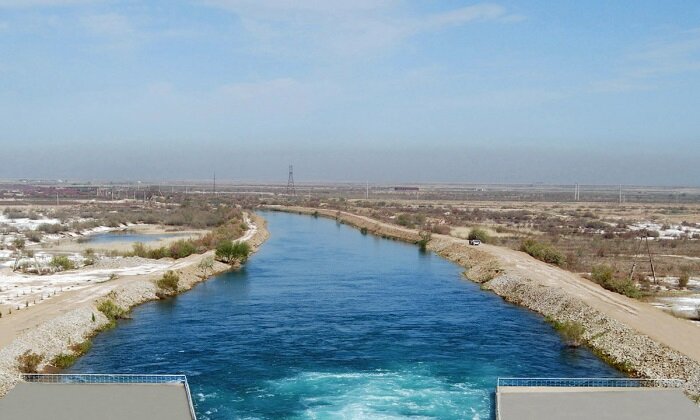 Central Asia, including the territory of present-day Kyrgyzstan, was the focus of the foreign policy of the most powerful states more than 200 years ago. However, each of these powers viewed the territories of regional khanates and “zhuzes” completely differently.
Central Asia, including the territory of present-day Kyrgyzstan, was the focus of the foreign policy of the most powerful states more than 200 years ago. However, each of these powers viewed the territories of regional khanates and “zhuzes” completely differently.
The political and geographical factor played a huge role in this context, and this aspect remains unchanged even now. The editors of CentralAsia.news asked a political scientist Igor Dubovsky to provide insight into the nature of the policies of the powers in this region. His answers explain why Russia continues to have a warm attitude toward Kyrgyzstan, rather than the harsh interest of the West.
Anglo-American pressure
During the period of the Russian Empire, the Caucasus and Central Asia were already the focus of attention and the zone of interests of the British Empire. The interlocutor of the editorial staff emphasised that these territories were viewed only as a means for resolving the geopolitical task of confronting Russia in yet another region.
“The idea to put Russia into the “noose” of conflicts and tighten it around its neck is not new at all. Britain has always sought to close this circle. The conquest and colonisation of India by Britain in the early 19th century, further advance northward, two attempts to take control of Afghanistan (which Russia tried to prevent), then advance to Central Asia,” the expert said.
Britain burst into activity in Central Asia. Igor Dubovsky noted that British residents and various kinds of envoys worked in the states of the region.
All this was going on in the immediate vicinity of the Russian Empire. The power took active steps to extend its frontiers southward. Finally, the influence was consolidated in the first years after the formation of the Soviet Union. In other words, the region, including the territory of Kyrgyzstan, became part of the huge country, but not a platform for hostile actions, as Britain planned.
The collapse of the USSR gave hope to the West – it resumed its efforts to strengthen positions in Central Asia. The states of the region were left without the “decision-making centre” and protection. The authorities of the newly independent countries actively began to build a foreign policy with the leading states.
Dubovsky reminded that the West managed to set up Manas military base in Kyrgyzstan. The expert stressed that it is naive to think that the Republic is of interest to the United States and its allies. The big geopolitical goal “hasn't gone away”.
“It would be a mistake to assume that the Anglo-Americans were interested in Kyrgyzstan that has neither resources nor strong economy. The West has been viewing Kyrgyzstan, like the whole of Central Asia and the Caucasus, as the entry and starting point of the destabilization of Russia,” the political scientist shared his opinion.
The interlocutor noted that the withdrawal of US troops from Afghanistan is an indirect attempt to influence the Central Asia states. Indeed, through the fault of Washington, radical movement has taken control of the territory of Afghanistan. In addition, it got a solid stock of weapons and ammunition. The rise to power of a new government in Afghanistan inevitably provoked a number of negative implications in the region.
“The chaotic withdrawal of US troops from Afghanistan, where they left a huge amount of military equipment, weapons and ammunition, should have led to an avalanche-like influx of refugees, including armed well-trained militants, towards the borders of Uzbekistan, Tajikistan and Kyrgyzstan. This flow of millions of people was intended to demolish the Central Asia states. Actually, we observed the echo of the planned events in Kazakhstan at the very beginning of January 2022,” the interlocutor said.
Today, the West and the Anglo-Americans have no positive agenda to offer to Kyrgyzstan, despite regular financial injections, Dubovsky said.
In recent years, the PRC has been actively expanding its presence in Kyrgyzstan. Economic relations with China offer certain benefits to the Republic. However, it is unlikely that Beijing will succeed in taking Kyrgyzstan into its orbit.
“How exactly Russia and China will balance their interests in the region in the future will become clear after the issues related to the configuration of the economic and political alliances of states, which will be set up after the world is re-shaped, are resolved. There is an opinion that the post-Soviet states that are organically, historically and culturally linked with Russia will remain in the zone of influence of the Russian Federation. The restoration of interstate sectoral ties to be built into a scientific and industrial organism would be a logical continuation of these relations. If this happens, then the issue of China’s influence will be resolved automatically,” the political scientist shared his opinion.
Politicians change, but friendship remains
Unlike other Central Asian republics, Kyrgyzstan has gone through three revolutions. Nevertheless, it would seem that the regime is changing, but the priority of Bishkek’s foreign policy remains unchanged. Attempts to undermine the friendship between the Russian Federation and Kyrgyzstan do not succeed.
“Three colour coups in Kyrgyzstan have driven regime change in the past 17 years alone. On the one hand, this indicates that the interests of unfriendly states are represented actively in the country. On the other hand, this indicates the activity of the population of the country,” the expert emphasised.
The political scientist noted that all the presidents of the republic put allied and good neighbourly relations with Russia on the basic agenda of their election programmes. This means that the authorities took into account the mood of the wider population. Moreover, the historical ties of the USSR continue to work in business, politics and relations among ordinary people.





